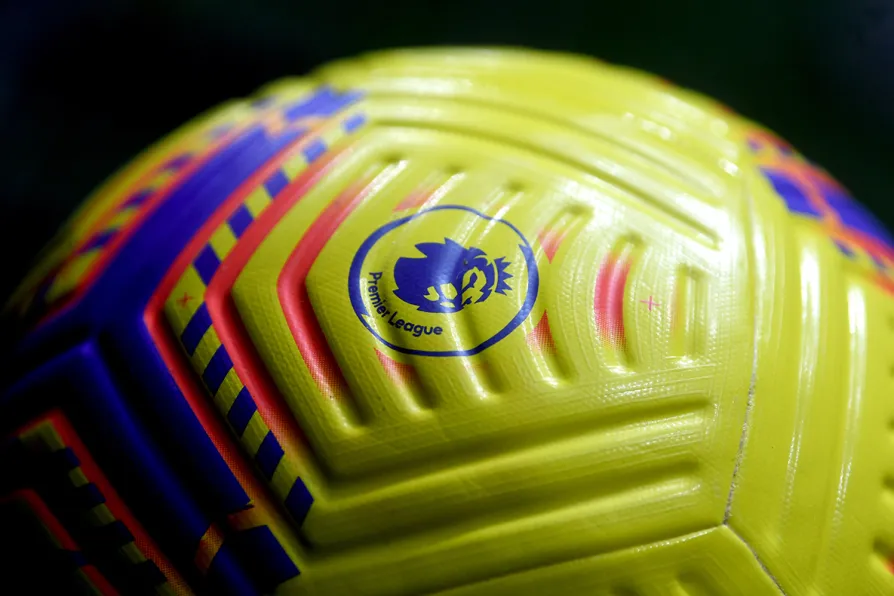

AS THE Premier League stumbles around the implementation of its own profit and sustainability rules, faces the prospect of an independent regulator, and fails to agree to a financial deal with the EFL, the direction of top-level football in this country looks increasingly muddled.
It raises questions around how such a runaway system can be restrained, how the money the game as a whole generates can be fairly distributed, and whether imposing limits on certain clubs that didn’t previously apply to others in the same system is a fair way to go about it.
Football at this level is a game increasingly played by owners (usually states or capitalist conglomerates), governing bodies, and their lawyers, as much as it is played on the pitch.
Since February, Everton have won more points off the pitch than on it, having reclaimed four of the initial 10 they were deducted by a Premier League independent commission in November.
The commission’s legal errors have been the Toffees’ most effective player in the last month or so, although that might be unfair on Jarrad Branthwaite, the ex-Carlisle United centre-back who just earned his first England call-up.
Meanwhile, Nottingham Forest may also face a points deduction that could affect the relegation battle this season, Manchester City are still playing some of the best football around but have over 100 charges hanging over them like an ominous dark cloud, and Chelsea’s continued mid-table mediocrity might lead to FFP trouble further down the line given they recently spent over a billion pounds on players.
Amid all of this, the issue of solidarity with the EFL, which contains Premier League clubs of the past and the future, and what that looks like, remains a divisive topic among those currently holding Premier League status.
Some Premier League clubs will claim that they are the prime driver of the money coming into the game, and they should get to keep it as a result.
Part of a Premier League statement on Monday said that “Premier League clubs re-confirmed their commitment to securing a sustainably funded financial agreement with the EFL, subject to the new financial system being formally approved by clubs.”
Nevertheless, it failed to agree on a deal to distribute money down the pyramid, with 10 clubs indicating they would not vote in favour of the deal. The Premier League needs 14 of its 20 clubs to back a deal for it to pass.
In theory, Premier League status is only temporary. Any Premier League club could, at the end of any season, become an EFL club, thus losing their Premier League vote.
In practice, there are several teams to whom this doesn’t apply, and those teams would like this status to be even more secure, which can affect voting. Things like trying to join a Super League and attempts at increased independence on TV deals are examples of such sneaky manoeuvres to maintain a status quo and keep more money for themselves.
These clubs should not forget they are in this lucrative position thanks in no small part to the football pyramid itself. You can’t let the pyramid prop you up while you build, and then discard it once you reach a certain level.
There was a reminder of this on Wednesday night. As the Champions League was playing out to apparently little interest, Bournemouth and Luton were playing out a 4-3 thriller.
The game wasn’t shown on TV but it was eventually the talk of English football that night. Any newspapers that saved ample space for Champions League reports and reactions, may have been prompted into some last-minute rearranging. The online trend on that night was a four-goal comeback from Bournemouth.
(Incidentally, the game was perhaps also a reminder that football is not solely a TV product).
As little as 14 years ago, Bournemouth were playing in League Two, the fourth tier of English football and the lowest tier of the EFL.
Now they are coached by one of the most talented and highly regarded young managers in Europe, Andoni Iraola. They boast talent from around the world including Ghana international Antoine Semenyo who scored twice in the second-half comeback against Luton. And they have overseen the development of a player who has emerged as one of England’s top centre-forwards, Dominic Solanke.
Their opponents Luton Town may well be relegated at the end of the season, but under their own 41-year-old manager, Rob Edwards, they have been one of the more impressive outfits in the Premier League this season.
They have been more than the sum of their parts, as any team should, and more competent than many clubs with bigger budgets and higher profiles. A good outfit, despite their league position, and it was only 10 years ago they were playing outside the EFL altogether, in the fifth tier Conference Premier.
Then there is the quaintness of Kenilworth Road which has become a story in itself in the 2023/24 season. It offers a journey into the history of the game, the kind of grounds upon which English football and English football support was built, literally embedded into the community.
Without these grounds, without the dose of realism amid tunnel club corporate hospitality culture, and without the pyramid, the Premier League would be a league, not of football clubs, but of franchises detached from the rest of football. Some owners might prefer that to be the case, but it would not be good for the game.
Solidarity with the EFL and beyond is owed as a matter of course.

As football grapples with overloaded calendars and commercial pressure, the Mariners’ triumph reminds us why the game’s soul lives far from the spotlight, writes JAMES NALTON

Bournemouth merited their triumph over Mikel Arteta’s underwhelming Gunners who had one eye very much on their crucial Champions League clash v PSG












